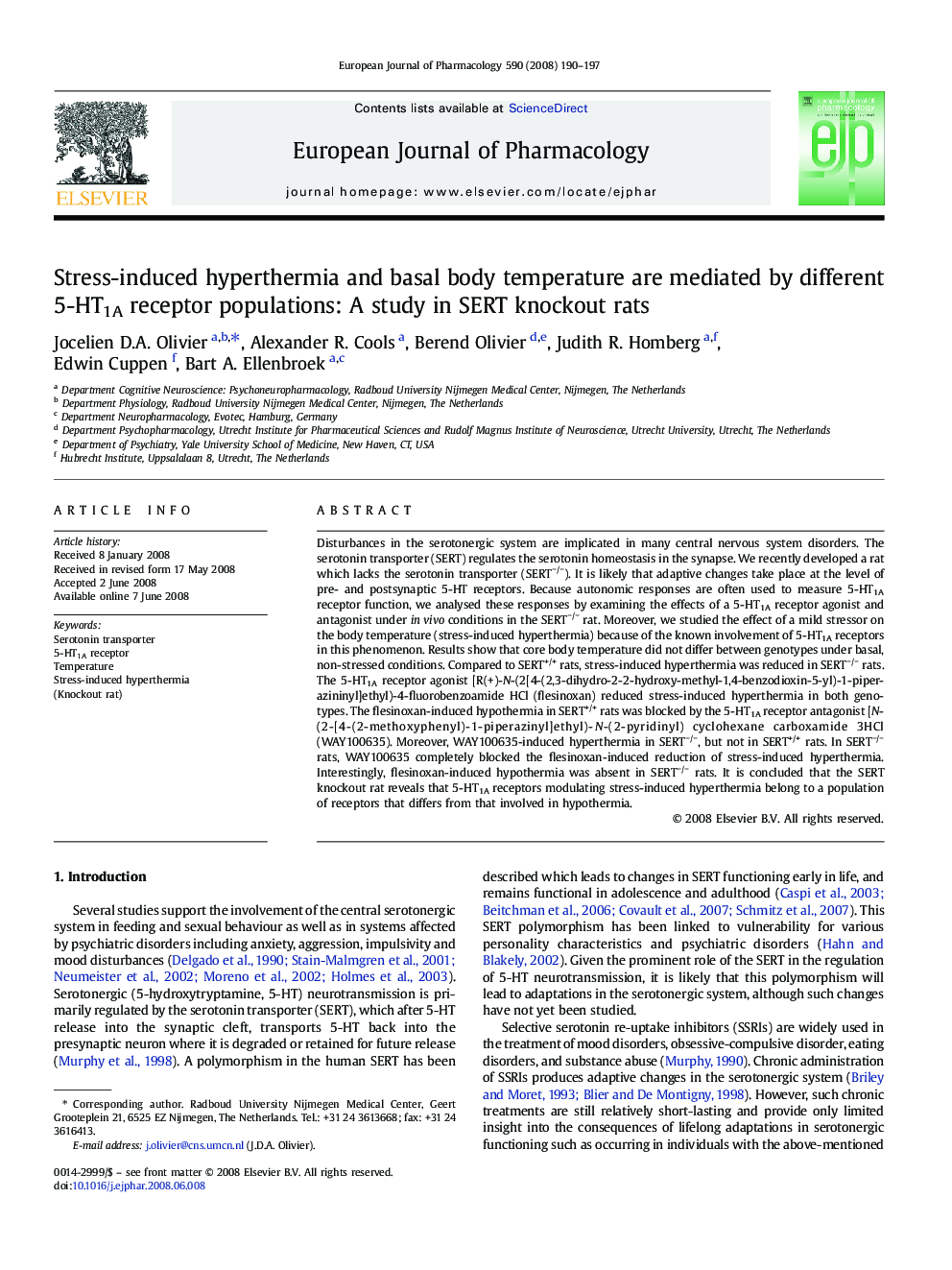| Article ID | Journal | Published Year | Pages | File Type |
|---|---|---|---|---|
| 2534943 | European Journal of Pharmacology | 2008 | 8 Pages |
Disturbances in the serotonergic system are implicated in many central nervous system disorders. The serotonin transporter (SERT) regulates the serotonin homeostasis in the synapse. We recently developed a rat which lacks the serotonin transporter (SERT−/−). It is likely that adaptive changes take place at the level of pre- and postsynaptic 5-HT receptors. Because autonomic responses are often used to measure 5-HT1A receptor function, we analysed these responses by examining the effects of a 5-HT1A receptor agonist and antagonist under in vivo conditions in the SERT−/− rat. Moreover, we studied the effect of a mild stressor on the body temperature (stress-induced hyperthermia) because of the known involvement of 5-HT1A receptors in this phenomenon. Results show that core body temperature did not differ between genotypes under basal, non-stressed conditions. Compared to SERT+/+ rats, stress-induced hyperthermia was reduced in SERT−/− rats. The 5-HT1A receptor agonist [R(+)-N-(2[4-(2,3-dihydro-2-2-hydroxy-methyl-1,4-benzodioxin-5-yl)-1-piperazininyl]ethyl)-4-fluorobenzoamide HCl (flesinoxan) reduced stress-induced hyperthermia in both genotypes. The flesinoxan-induced hypothermia in SERT+/+ rats was blocked by the 5-HT1A receptor antagonist [N-(2-[4-(2-methoxyphenyl)-1-piperazinyl]ethyl)-N-(2-pyridinyl) cyclohexane carboxamide 3HCl (WAY100635). Moreover, WAY100635-induced hyperthermia in SERT−/−, but not in SERT+/+ rats. In SERT−/− rats, WAY100635 completely blocked the flesinoxan-induced reduction of stress-induced hyperthermia. Interestingly, flesinoxan-induced hypothermia was absent in SERT−/− rats. It is concluded that the SERT knockout rat reveals that 5-HT1A receptors modulating stress-induced hyperthermia belong to a population of receptors that differs from that involved in hypothermia.
